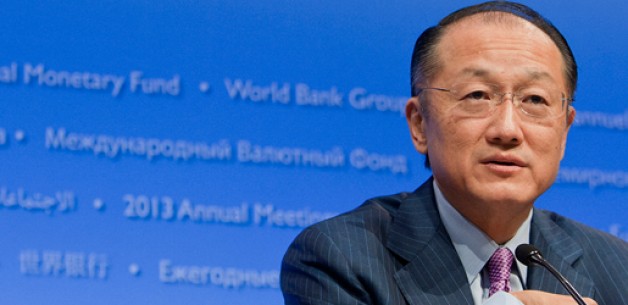Photo: Simone D. McCourtie / World Bank (CC BY-NC-ND 2.0)
(July 31, 2014) Over widespread objections from civil society, the World Bank’s board of directors gave a green light yesterday to a weak new set of rules to replace its existing environmental and social “safeguard” policies. The proposed policies appear to reverse a generation of gains by weakening protections from harm for the poor and the environment in Bank-funded projects.
“By eliminating clear rules and gutting key requirements, the Bank is breaking President Kim’s repeated promises not to dilute the safeguards,” says Sasanka Thilakasiri, Policy Advisor at Oxfam International.
Final approval of the policies will not come until 2015. Though they made clear they do not “endorse” the draft, by clearing the draft as is, the board sent a clear signal of a major shift in which governments and the World Bank are given unprecedented latitude over decisions regarding when, how, and, in some cases, evenif these policies will be applied to particular Bank projects.
“The Bank’s promises that this new ‘flexible approach’ will be made up for by closer supervision fall flat because the Bank is notoriously bad at it and lacks the capacity to monitor impacts on the ground,” says Cesar Gamboa, a long-time Bank-watcher from Derecho Ambiente y Recursos Naturales in Peru.
Consistent with its mantra on flexibility, the Bank is proposing a new loophole that allows governments to “opt out” of previously guaranteed protections for indigenous peoples, citing discomfort among certain African governments with the term “indigenous peoples” and the rights it confers. This would be a major blow to indigenous peoples, particularly in Africa, who have counted on the Bank to recognize their rights when their own governments refuse.
Adrien Sinafasi, a prominent indigenous “pygmy” activist in the Democratic Republic of Congo, argues that “the World Bank’s intention to allow our governments, which have marginalized our communities for decades, to decide whether we are indigenous would severely undermine our fundamental human rights and weaken the limited protections we currently have.”
At the same time, despite repeated promises by the World Bank that the revised safeguard policies would include stronger protections for poor communities and those it terms “disadvantaged” or “vulnerable” groups, the leaked draft contains only general mentions of the need to consider impacts of projects on those who may be “disadvantaged” due to age, disability, gender, and sexual orientation or gender identity.
“It is imperative that the World Bank looks at the unique impacts on each ‘disadvantaged’ or ‘vulnerable’ group given their specific rights and needs. Only this will enable all persons to benefit from and not be harmed by Bank projects,” says Mohammed Loutfy, Disabled People’s International, Arab Region Advisory Body Chair.
Similar Bank assurances that pressing environmental challenges would be adequately addressed in the new policies are also contradicted by the draft policies. “Despite the Bank’s warning of the dangers that a warming world poses to development, there is only sporadic mention of climate change in the safeguard proposal. Nowhere does it lay out what governments have to do to assess if their projects will exacerbate climate change or how climate change will affect the viability of their projects,” says Soumya Dutta, Convener of Beyond Copenhagen collective and other climate justice groups in India.
Meanwhile, Makoma Lekalakala from Earthlife Africa in Johannesburg, South Africa says, “the introduction of ‘biodiversity offsets’ into previous ‘no-go’ areas substantially weakens existing protections for critical natural habitats and protected areas, based on the shaky premise that destruction to these areas can be compensated or ‘offset’ by agreements to preserve habitats elsewhere in perpetuity.”
Ultimately, the policies not only fail to protect communities impacted by Bank projects, they will also lower the bar for development finance institutions that look to the World Bank as a trend-setter. Vince McElhinny, the Bank Information Center’s Senior Policy Advisor, notes, “the World Bank has fallen far short of its goal of setting a new global standard when it comes to protecting the poor and the planet. Instead, it is setting off a race to the bottom.”
For more information, please contact:
Bank Information Center, Joshua Klemm: +1-202-492-8904; jklemm@bicusa.org
Oxfam International, Sasanka Thilakasiri: +1-240-543-2520; Sasanka.Thilakasiri@oxfaminternational.org

